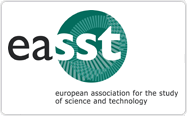Money, Money, Money? Politico-Moral Discourses of Stem Cell Research in a Grant Allocation Process
DOI:
https://doi.org/10.23987/sts.55350Abstract
Concerns have been raised about the marketization of science through the prevailing funding regime. However, the present article will discuss how it comes that the potentially marketable stem cell science is not more commercialized than what is currently the case. We approach this question by analysing discursive pluralism in defining the value of stem cells within a grant allocation process. More specifically, we focus on how the commercial imperative is challenged by other cherished values surrounding stem cell research. The case study used to discuss this is the Swedish Government’s funding of stem cell research within so-called strategic research programmes. The analysis focuses on the co-existence of what we refer to as entrepreneurial, translational and basic research politico-moral discourses. How the co-existence of politico-moral discourses is possible, despite potential tensions, is investigated by drawing on the theoretical framework of bio-objectification. Specifically, we highlight how the relationship between various bio-identities and values was reorganized along the research grant allocation trajectory. We argue that there are obvious signs of temporally specific discursive shifts away from the commercial imperative in the grant allocation process. This suggests the need to study located processes, in order to understand the work of politico-moral discourses in the grant allocation process. This work contributes to an understanding of the uneven and varied impact of neoliberal policies on biomedicine.





